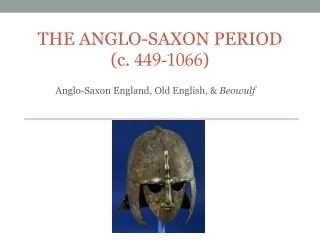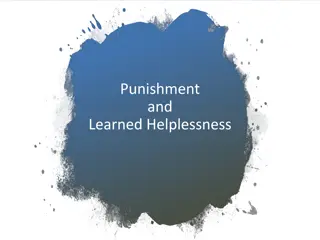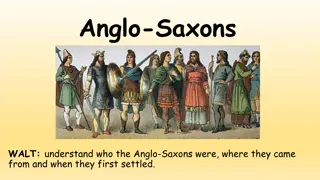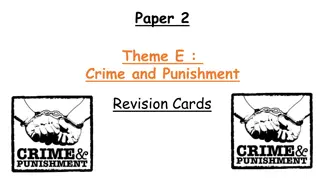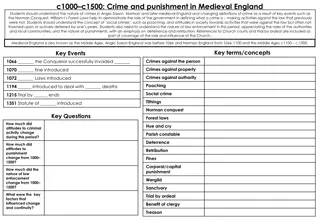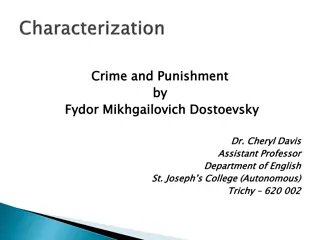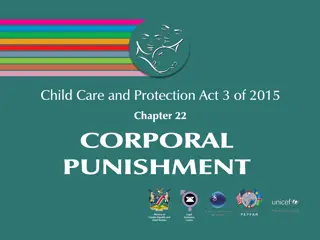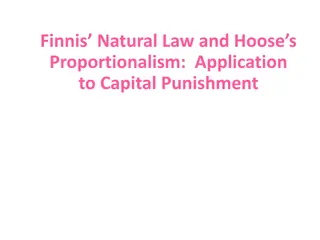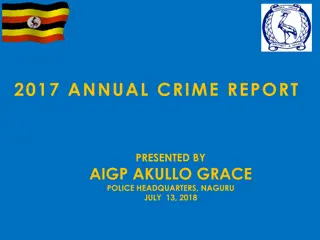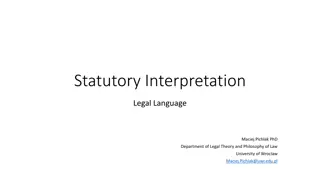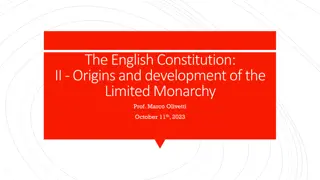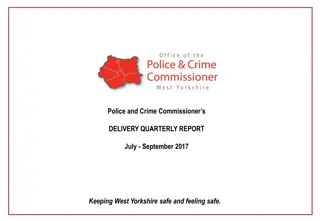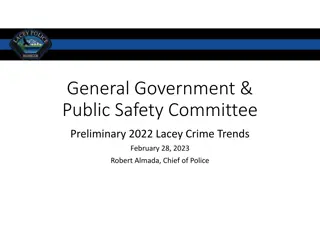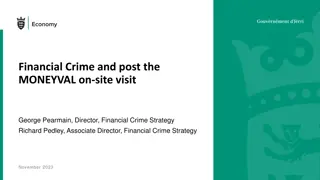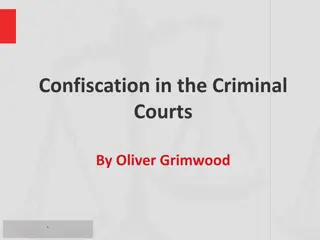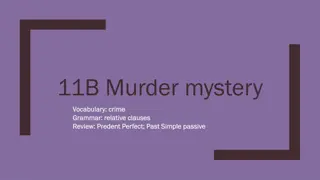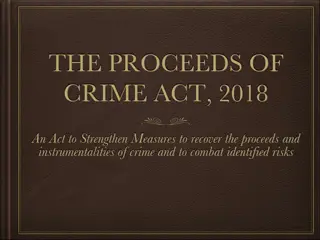Crime and Punishment in Anglo-Saxon Times
Life in Anglo-Saxon Britain (410-1066CE) involved small village living, limited urbanization, community policing, and unique forms of justice like trials by ordeal and weregild fines for crimes. The system was decentralized, with neighbors and tithings responsible for law enforcement and punishment under the guidance of local leaders and the church.
Download Presentation

Please find below an Image/Link to download the presentation.
The content on the website is provided AS IS for your information and personal use only. It may not be sold, licensed, or shared on other websites without obtaining consent from the author. Download presentation by click this link. If you encounter any issues during the download, it is possible that the publisher has removed the file from their server.
E N D
Presentation Transcript
Crime and Crime and Punishment in Punishment in Anglo Anglo- -Saxon Saxon times times Watch this video: https://www.bbc.co.uk /bitesize/topics/z8w3n 9q/articles/zxhqkty
What was life like? The Anglo-Saxon period in Britain was from around 410 to 1066CE. A lot of the population lived in small villages in the countryside and very few lived in towns. This meant that many people knew their neighbours well. Most people grew their own food and farmed the land where they lived. Children were considered adults at 10 years old!
Was there a police force? There wasn't a police force like we have today. Keeping law and order was the responsibility of everyone in the village. If someone was seen committing a crime then the witness could raise a hue and cry (shouting for help). Everyone who heard it was expected to help chase and capture the suspects. There was a system in place called 'Tithing' in which a group of ten men were made responsible for each other s behaviour. If one of them broke the law, the other members of the tithing had to bring them to court. If they didn't, they would have to pay a fine. Every male over the age of twelve was expected to join a tithing
The leader of the village would use the laws written by the King to decide what punishments you would receive. The church and local lords had the power to decide punishments. The church had its own courts and a different system of punishment. The Anglo-Saxons didn't have prisons. Most people found guilty of crimes were punished with fines. Some crimes, such as treason against the king or betraying your lord, were thought to be so serious that they carried the death penalty. Regular offenders were punished very harshly. If they were found guilty of stealing more than once they might have their hands cut off! How were people How were people who broke the law who broke the law punished? punished?
Weregild Weregild, which means 'blood price', was a system of fines where, if you injured someone, the victim received money. The King set the fines and there was a system of payments: 12 shillings for a broken thigh. 20 shillings for the loss of a thumb. 50 shillings the loss of an eye. If a person killed someone, they paid the weregild fine to the dead person's relatives.
Trial by ordeal If a jury couldn't decide if a person was innocent or guilty then there was the option of 'trial by ordeal'. Examples of ordeals were: Walking at least nine feet on hot coals. Putting your handing boiling water to retrieve a stone. Picking up a red hot iron. If your wounds healed cleanly after 3 days, then you were considered to be innocent in the eyes of God.
Did you know? Before weregild was developed, early Saxon Kings allowed victims of crimes to punish criminals themselves. So, if someone was murdered, the family had the right to track down and kill the murderer. This obviously led to more violence.
WALT: understand the different forms of crime and punishment throughout the ages. WILF: I can discuss crime and punishment in Anglo-Saxon times. 1. Can you see any similarities of punishments between the Romans and the Anglo- Saxons? 2. Can you find any similarities between the laws we have today and the laws that the Anglo-Saxons had? 3. You are a ten year old Anglo-Saxon being tried for stealing! Write a speech to the Anglo-Saxon jury to convince them of your innocence! Your speech must be a page long and it should contain persuasive language and details of what happened.




